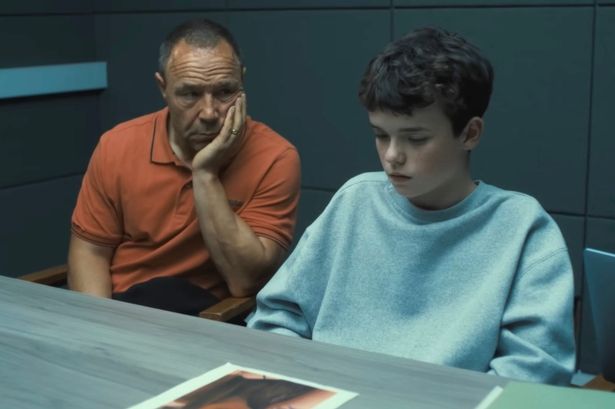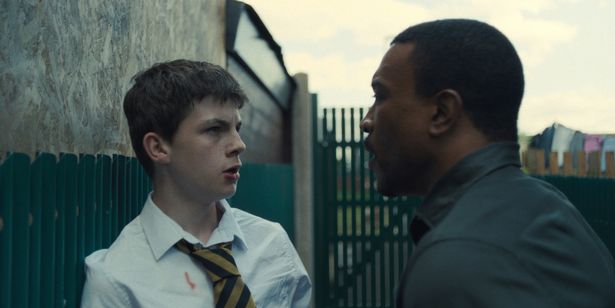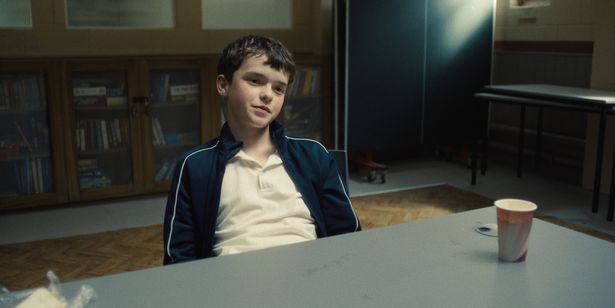Netflix show Adolescence has given parents a whole new host of things to fear for their children, and the NSPCC gave some ‘tips and tricks’ to spot worrying signs and keep kids safe
The stars of Gogglebox just watched Adolescence, and were left in tears at the terrifying tale. They’re not the only ones, with many parents also discovering new fears after learning just how vulnerable their children might be.
In the Netflix show – which became an instant hit and talking point this month – 13-year-old Jamie Miller, played by newcomer Owen Cooper, brutally kills a female schoolmate after being bullied online and then radicalised by misogynist content created by influencers such as Andrew Tate.
The miniseries highlights the fact that any child could be vulnerable to being exposed to or radicalised by such content online, even those from loving homes.
While parents scramble to figure out how to bring up their children in the digital age, the NSPCC spoke to the Mirror to give some clear advice to mums, dads, and guardians – and encouraged them not to worry themselves sick over what Adolescence showed.
What signs should a parent look out for that their child is at risk?
According to Ella Bradshaw, a Policy and Public Affairs Officer at the NSPCC, parents need to be aware that there’s no ‘one size fits all approach’ to signs a child might be in danger online – and the most important thing is to know your own kid so that changes will be more obvious.
“There can be a lot of pressure on parents to feel that they need to know the signs and pick up on these things, but what Adolescence really shows is that sometimes can be very subtle or not necessarily understandable,” she said.
Stressing that parents are under pressure to be “perfect,” Bradshaw added that realistically the key thing to do is stay “engaged” with your child to spot signs such as emotional changes – such as waves of unexplained happiness, sadness, or a volatility.
Considering the content of Adolescence, she also suggested keeping an eye out for how a child talks to or about female friends or family members, and changing behaviour around technology.
This could mean a child becoming “more secretive” with their devices, or only using them when they’re alone in their bedroom instead of around the family. Also keep an eye out for “unexplained gifts”, whether in the form of online credits or real-life presents.
“If you’re being influenced internally by misogynistic content that’s not always going to change you externally, and often children hide things that feel scary or different,” she said of why it’s important to have openness and understanding of your children.
What’s the best way to talk to your child if you’re concerned about them?
If you do think signs could point to something worrying in your child’s life, it’s hard to know the best way to begin the tough conversation without risking pushing them further away.
Bradshaw said that the way to approach children obviously varies as they’re all different individuals, but she offered some “tips and tricks” to make difficult chats more fruitful.
“Choosing the environment is really important – choosing a time and space where the child is going to feel relaxed and open,” the Policy Officer advised, jokingly sharing that when she was a kid the best scenario would have been in her mum’s car, so that she was in a private space and could avoid eye contact if she felt awkward.
The NSPCC also stresses not to use “alarmist or accusatory language” even if you’re concerned or shocked. Bradshaw explained that children often call Childline and say that they’re worried to report or speak about scary things “because they’re worried that parents or guardians will remove their access to the online world as punishment if they see danger there.”
Instead, try to ask open questions, as threats might “sway children from talking openly” and mean the topic won’t be freely addressed.
What steps can parents take to keep their children safe online?
Firstly, Bradshaw encourages starting to have conversations over big topics early, so that your child has a good grounding early in life and is used to talking about big issues with you – particularly as children are now getting smartphones when they’re as young as eight years old.
It’s better to talk about online dangers even before your own child is online, and to keep in mind that even if they don’t have a phone yet, they’ll still likely be exposed to the online world via siblings or peers.
Bradshaw also said it’s a good idea to get to know safety settings on social media apps, which can provide a really easy, quick way to boost safety online.
“It is tiring and a lot of work,” she admitted, seeing as each platform has very different privacy and security settings. However, she said a good starting point is to make sure your children’s apps prevent people who aren’t their friends from messaging them, and to be certain that private information such as location or profile photo are visible to the public.
The NSPCC is also pushing governments and tech companies to end self-declared birth dates, which are common on social media apps and mean that young children can lie about their age to use the platform before they necessarily have “the critical thinking skills to be able to navigate the really difficult environments.”
Should we be so terrified about what we learnt in Adolescence?
“My heart really goes out to parents – parenting is hard enough without adding in all these extra worries about the online world,” Bradshaw said of the mania caused by Adolescence.
The NSPCC rep said that it’s only normal to be worried by what the show represents – but that worry can be channelled into raising awareness and taking the chance to learn.
“It can be used in a positive way. If you’re panicked and frozen in fear about all the endless possibilities of what could happen online that’s probably not going to help you or your child.
“But if we take that worry and use it to educate ourselves, perhaps by talking to other parents or talking to your child that can actually start a really helpful, positive conversation,” she said.
Bradshaw described Adolescence – scary as it is – as “a really important piece of education, to remind people that this can happen to anyone.”
She added: “Scary things do happen, but there are also a lot of ways that we can try and stop that from happening and look after our children and loved ones.”
Bradshaw encouraged parents and guardians who want more advice to visit the NSPCC site on online safety, where you can also find useful resources and learn what steps to take if you have any concerns for your child.
Like this story? For more of the latest showbiz news and gossip, follow Mirror Celebs on TikTok, Snapchat, Instagram, Twitter, Facebook, YouTube and Threads.


